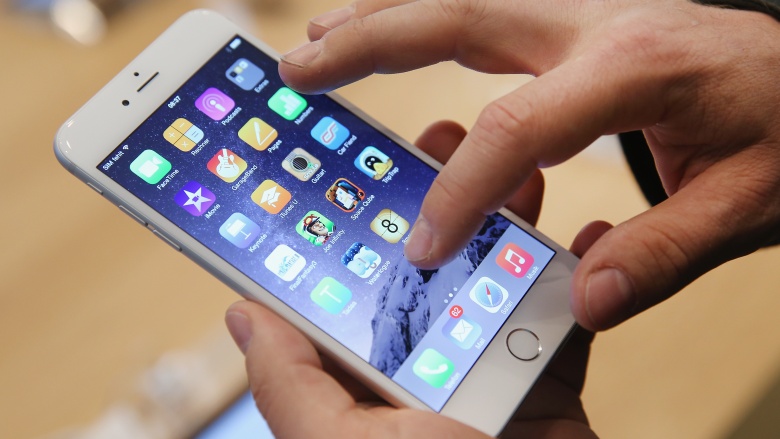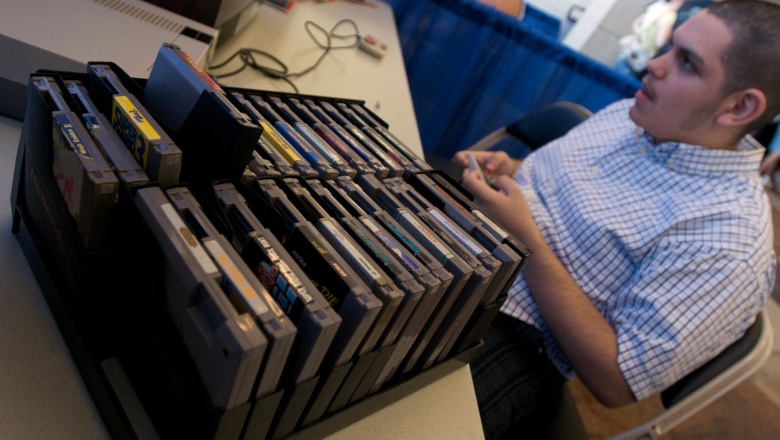How Mobile Gaming Needs To Evolve
Mobile gaming is undoubtedly the wave of the present, converting even the most resistant holdouts into casual phone gamers. We all know that Candy Crush is just a gateway into full-on Grand Theft Auto madness. Like all popular things, however, mobile gaming has reached a complete saturation point, and gamers seem ready to move on to the next thing, whatever that might be. All we know is that an Angry Birds movie exists, so it's clearly time to reinvent the whole genre. Here are some ways for mobile gaming to evolve into something even better.
Originality
It goes without saying, but we'll say it anyway: an influx of truly original games could breathe new life into mobile gaming. While we're seeing a newer influx of games that force the user to go out into the real world and actually be ambulatory and have off-screen experiences, we're sick of scrolling through hundreds of reskinned versions of the same tower defense game every time we check into the app store to see if there's anything worth trying. We're getting closer to perfect phone-based 3DVR tech, so maybe full-on immersion will do the trick and break the tired trends of today.
Limiting microtransactions
If a game requires you to pay five bucks in order to level up, it's probably a bad game. And if you pay that five bucks just because you're impatient or don't want to make an effort, you're probably a bad gamer. Any time you drop real Earth-money on fake game-money, a small part of you dies, and mankind weeps. Yes, it's irresistible to try to improve your in-game life when your real life sucks so hard, but it's microtransactions that are truly the venom that lives within the mobile gaming system. Small infusions of cash may keep developers alive, but it never feels good to hit that button as a gamer. Find ways to cut it out.
Integration with console gaming
The ability to develop a character's strengths on a console game is inherently more rewarding than the piddling rewards you get on mobile. Maybe it's because your TV is bigger and the games are deeper, or maybe it's because mobile games are generally built for a quick hit of dopamine over any genuine progression. However, linking mobile game achievements to earning rewards on your fancy console game easily amplifies that satisfaction, and eliminates that weird feeling of detachment you get when you can't bask in the glow of your PlayStation. Tying more non-essential (but fun) mobile minigames into a larger experience is the way to go.
Greater compatibility
While a majority of mobile games now acknowledge that casual gamers are almost equally divided between Androids and iPhones, there are still plenty of developers who completely ignore one set or the other. Making games universally compatible with the last five years worth of phones is essential to keeping mobile gaming strong; alienating slightly older phones isn't an option, and promoting a game that only half of the audience can use is just as frustrating. The situation becomes even worse when a user purchases a game and updates cause incompatibility with their phone model, because it makes you never want to trust a new game again.
Capture the retro nerds
With the resurgence of retro gaming, it's pretty surprising that Nintendo hasn't launched a Wii Shop-like service for mobile devices to supply geeks with a steady stream of classic NES games. While informal ROMs and emulators exist, long-standing gaming companies marketing their classic games—and possibly classic controller hookups—would absolutely pull in a portion of the current retro nerds. They're already paying premium prices for all manner of retro collectibles, whether they're genuinely vintage or those collectibles just look like the stuff they grew up with. You can hack your Wiimote now to play stuff on mobile, but we'd buy an NES controller for our phones in a heartbeat.
Actual prizes
Offering actual prizes for game accomplishments has always been problematic, from the days of Atari's troubled Swordquest to Peter Molyneux's awful non-prize at the end of Curiosity, but that doesn't mean that it has to stop. Curiosity saw a huge level of interactivity on a totally simple, meaningless app, so the potential for greater involvement and interest exists, but it needs to be harnessed correctly. It's not a new concept, but palpable rewards for digital activities is just the incentive we need to keep mobile gaming going, whether it's a cash prize or just a fancy trophy. No hackers, please.
Higher app store standards
Bad developers pop up like pimples, unwelcome and hoping to find viral fame for their terribly lazy efforts. Generic reskinned games have propagated through all app stores, making it impossible to find the real quality games among the noise. The standards required to get an app published in an official store are surprisingly low, and no-name developers regularly dupe unsuspecting customers by changing a few letters from a popular game's name and delivering a terrible product. Hey, Apple and Google: make developers try harder. You are the gatekeepers; stop letting in all the trash.
Fight piracy
The Internet is replete with statistics from developers regarding how often their apps are paid for versus how many people actually actively use those apps, and the numbers are staggering. For many popular games that require a very small upfront fee, less than 15 percent of all users are usually paying customers, and the rest have just outright stolen the app. While being overly proprietary and protective is never a good move, creators are quickly losing their motivation to innovate and build new engines if there's no reward at the end of it all. There's creating for creation's sake, but there's also a need to eat and pay rent. Thievery is driving fresh developers right out of the game before it even starts.








